First, an explanation: Many years ago, probably when I was in grade school, I read or heard a creation myth told by a Native American tribe—what tribe I cannot recall. The tale made a strong impression, and I fondly recall its outlines. Unfortunately, most details elude me.
While I realize a few minutes’ internet research would reveal the facts, probably the whole story, I’d rather tell it, retell it in my own words, the way I remember it, the way I wish I remembered it.
Let’s imagine sitting around an evening campfire enjoying each other’s congenial company. Imagine we are surrounded by tall, rugged cedars, their fragrance filling the crisp, clean air as warm, swirling breezes caress us; our eyes hypnotized by the campfire’s leaping flames and glowing embers; our noses savoring wispy smoke wafting by from time to time; our ears tickled now and again by the fire’s popping and crackling. A storyteller leans forward and we all get comfortable; we’ve heard his tale before, but we like hearing it again …
… In the beginning, there was only the great Manitou, the creator of all things. One day he felt sad at being alone surrounded by black nothing. So, he made the world, made everything: the heavens, the sky, the land, the waters. Even with all that, though, the world seemed incomplete, empty. Manitou decided to populate it. And so it was.
He put stars in the heavens, making them sparkle. He put sun and moon in the sky, illuminating the land and the waters. He put plants on the land and in the waters to provide variety … but not enough. So, Manitou put fish in the waters, enjoying the way they glided under the surface, their slick bodies glistening like silver. Some he encouraged to jump joyfully into the sky.
Fish should eat, Manitou decided. All living things must eat: to grow, to survive. He let fish eat water plants. Some fish complained, saying plants were too bland. “Well,” Manitou replied, “If that’s the way you feel, some of you can eat the others.” And so it was.
Manitou saw that it was good: As fish were eaten, it made room for others to grow, for new fish to be born. But the sky-jumping fish complained it was hard for them to get enough to eat. They threatened to stay below the surface.
Manitou said, “Don’t do that. I’ll make something you can catch and eat while in the sky. I’ll make insects.” And so it was.
That too was good. Not only were the sky-jumping fish satisfied, Manitou saw how insects kept the world clean, helped it renew itself. But with only fish to eat the insects, insect population grew out of control. So, Manitou said, “I shall create birds to eat the insects.” And so it was.
And, Manitou was pleased at the way birds enlivened the sky, swooping and diving, showing off a rainbow of colors, with a musical accompaniment of singing, tweeting, chirping. He found the sky and waters lively and attractive but the land dull by comparison, its insects hardly visible.
“The land needs animals,” Manitou said. “And I shall use the land itself to create them.” So, Manitou scooped up clay and molded it, using the same form over and over again, giving the new animals an embryonic form.
The animals felt naked, felt weak in embryonic form, so they banded together into clans, hoping that would give them protection. Yet, some clans complained to Manitou. “We are cold. Could you give us fur for warmth?” Others chimed in, “We’d like claws for digging; then we could make warm homes.” “We want teeth,” said others. And on and on a noisy clamor arose, Manitou becoming exasperated.
“Very well,” he said. “Think it over; talk among yourselves. Tomorrow each clan can ask for what it wants, and I will grant your requests.”
The next day, the Horse clan asked for hair and hooves and legs to run fast and a tail to swish flies. The Deer clan asked much the same but said they also wanted antlers. And so it was.
The Bear clan said they wanted great strength and strong teeth and sharp claws and thick fur to fend off bees when stealing honey. The Wolf clan didn’t want to be as big as bears but wanted sharp teeth and strong jaws and the ability to hunt in packs. And so it was.
The Turtle clan worried about so many teeth and claws in the world. They decided not to ask for teeth, asking instead for a protective shell. The Skunk clan thought turtles had the right idea but a shell was too bulky. They wanted a bad odor they could use to repel attackers. And so it was.
And that’s how it went, clan after clan telling Manitou what it wanted, having wishes granted, then leaving his domain to live on the land. Finally, only one embryonic clan remained. Its form was weak, thinly covered, and practically weaponless, hardly suited for living in the world. But when Manitou asked the clan what it wanted, its spokesman replied, “You are the great Manitou. We believe you made us this way for a reason. Therefore, we ask for no change.”
“Ah, at last,” said Manitou, “a clan with wisdom: the Man clan. To you I grant intelligence and humor and stubbornness and inventiveness. It is for you to dominate the world. … Now go, mankind; go and rule over all the other clans.” And so it was.
Sign up to receive updates and the Friday File email notices.
Support local, independent news – contribute to The Fallon Post, your non-profit (501c3) online news source for all things Fallon.
The Fallon Post -- 1951 W. Williams #385, Fallon, Nevada 89406

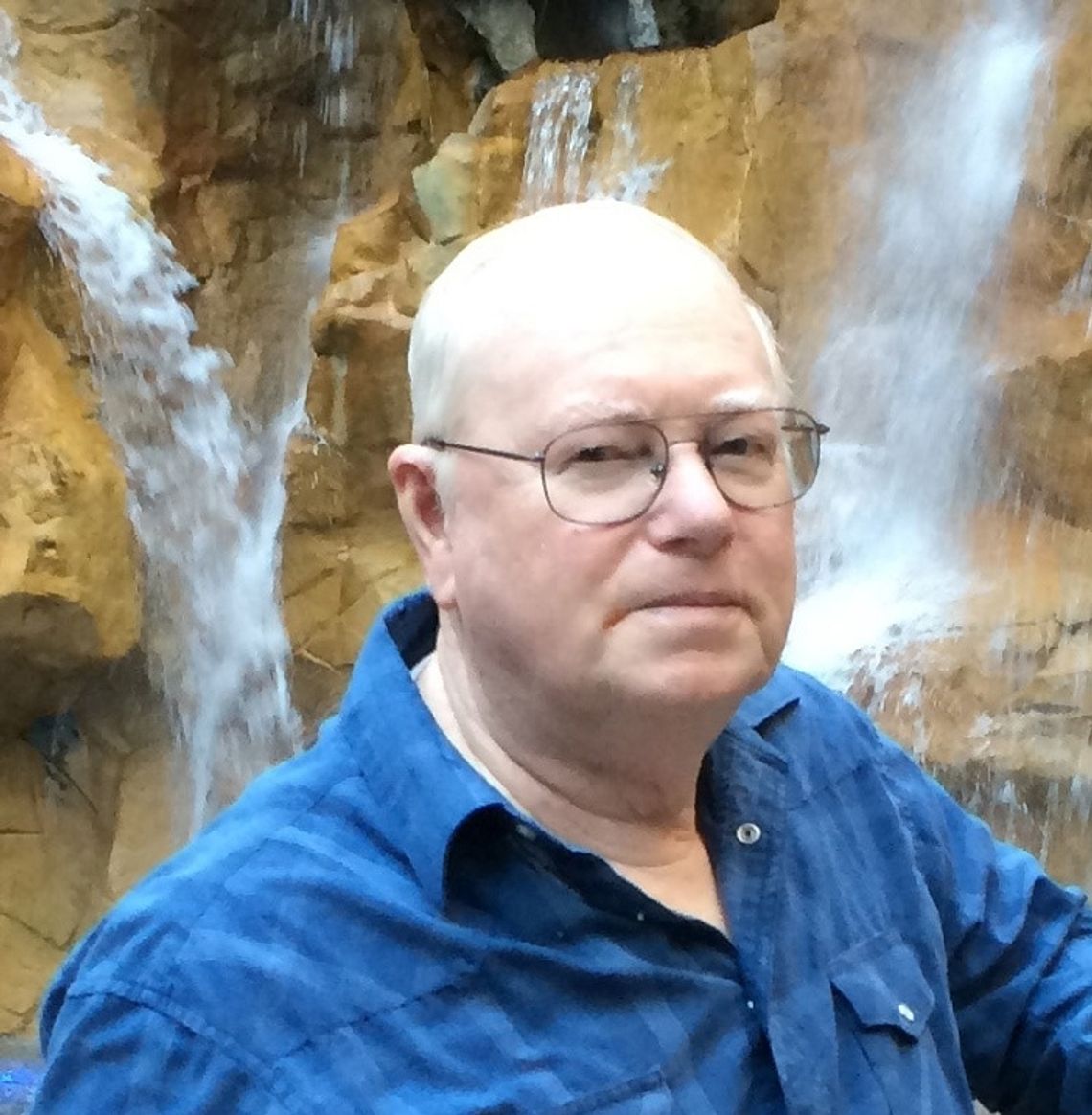

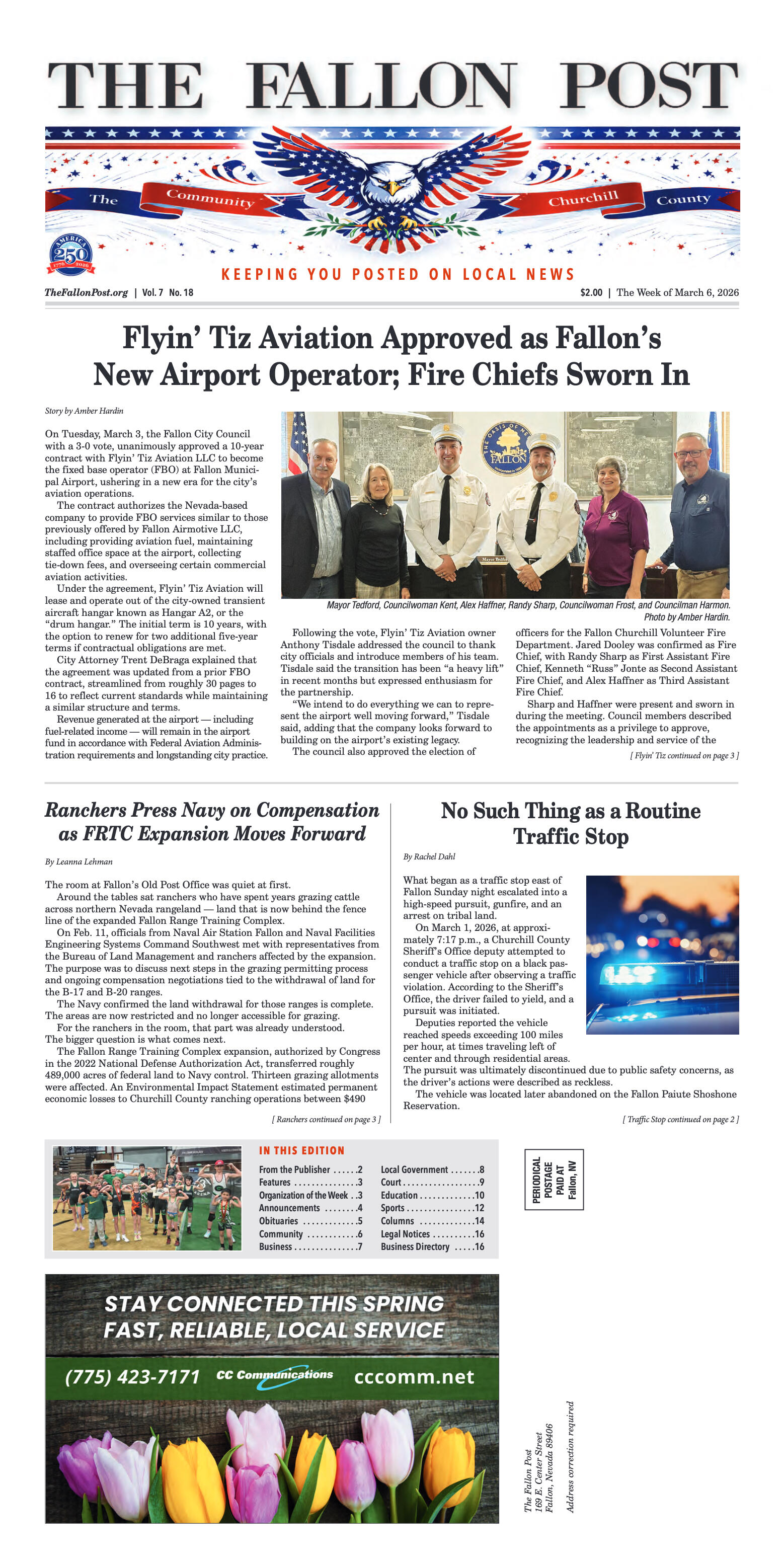
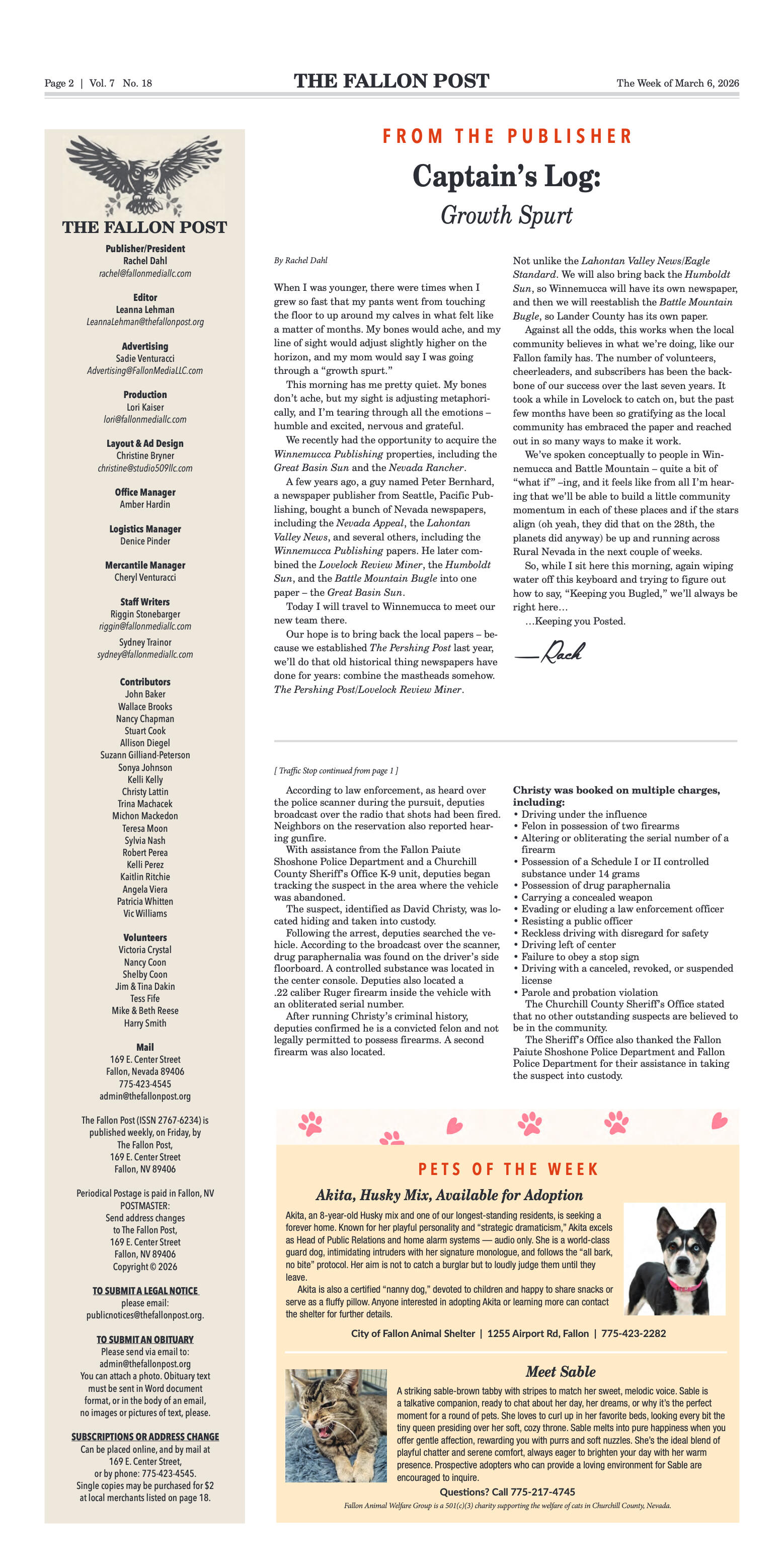
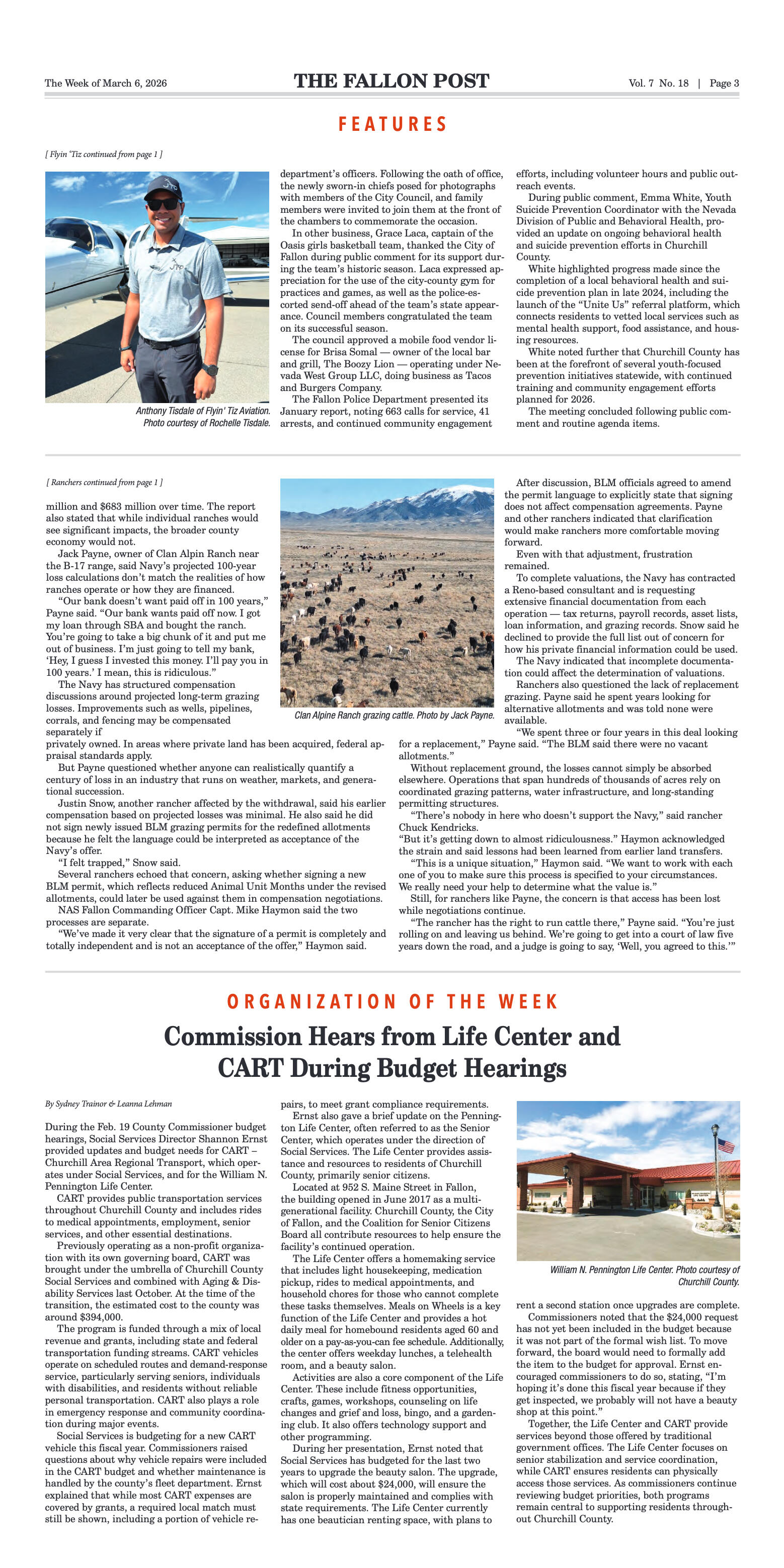
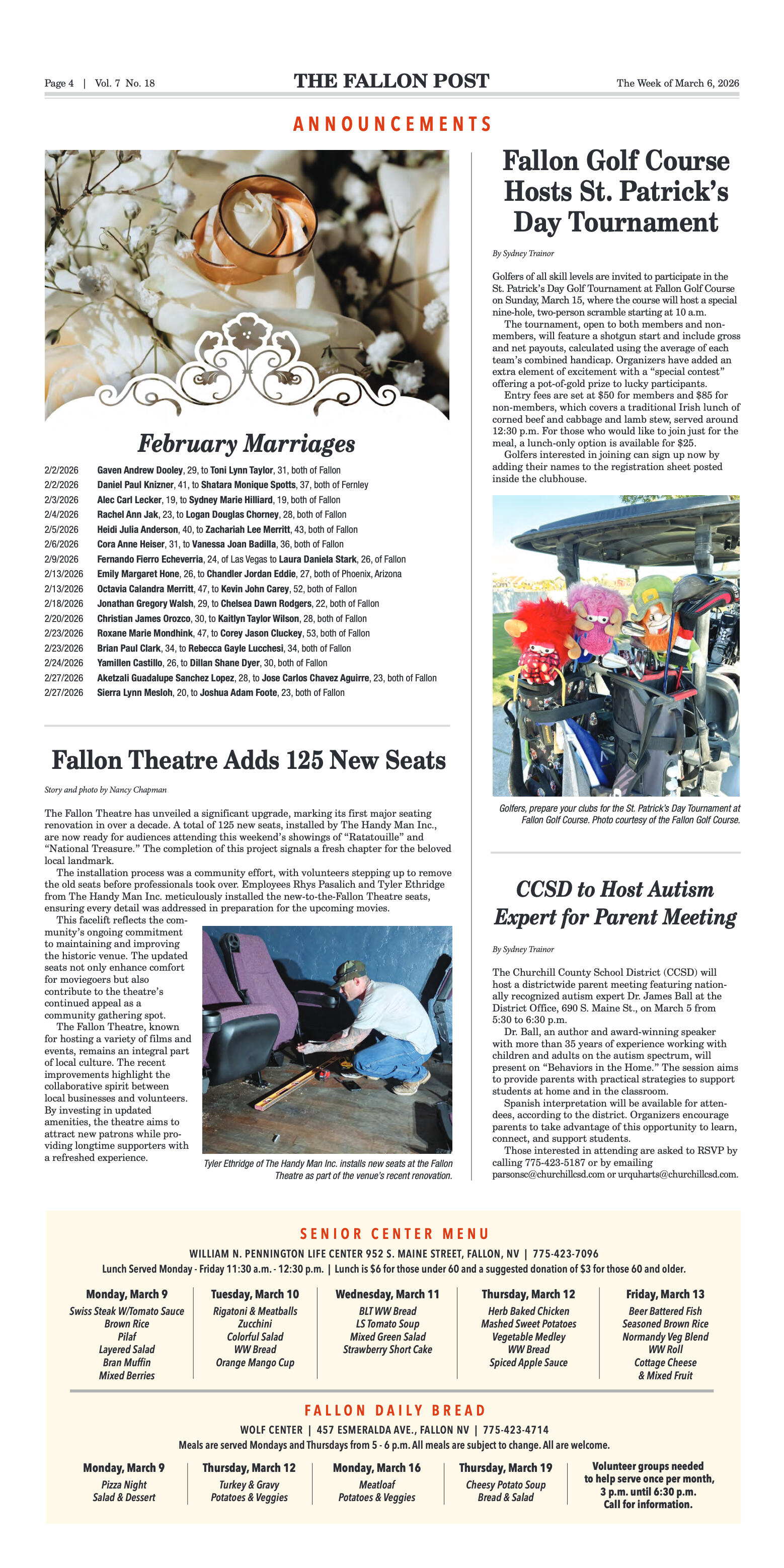
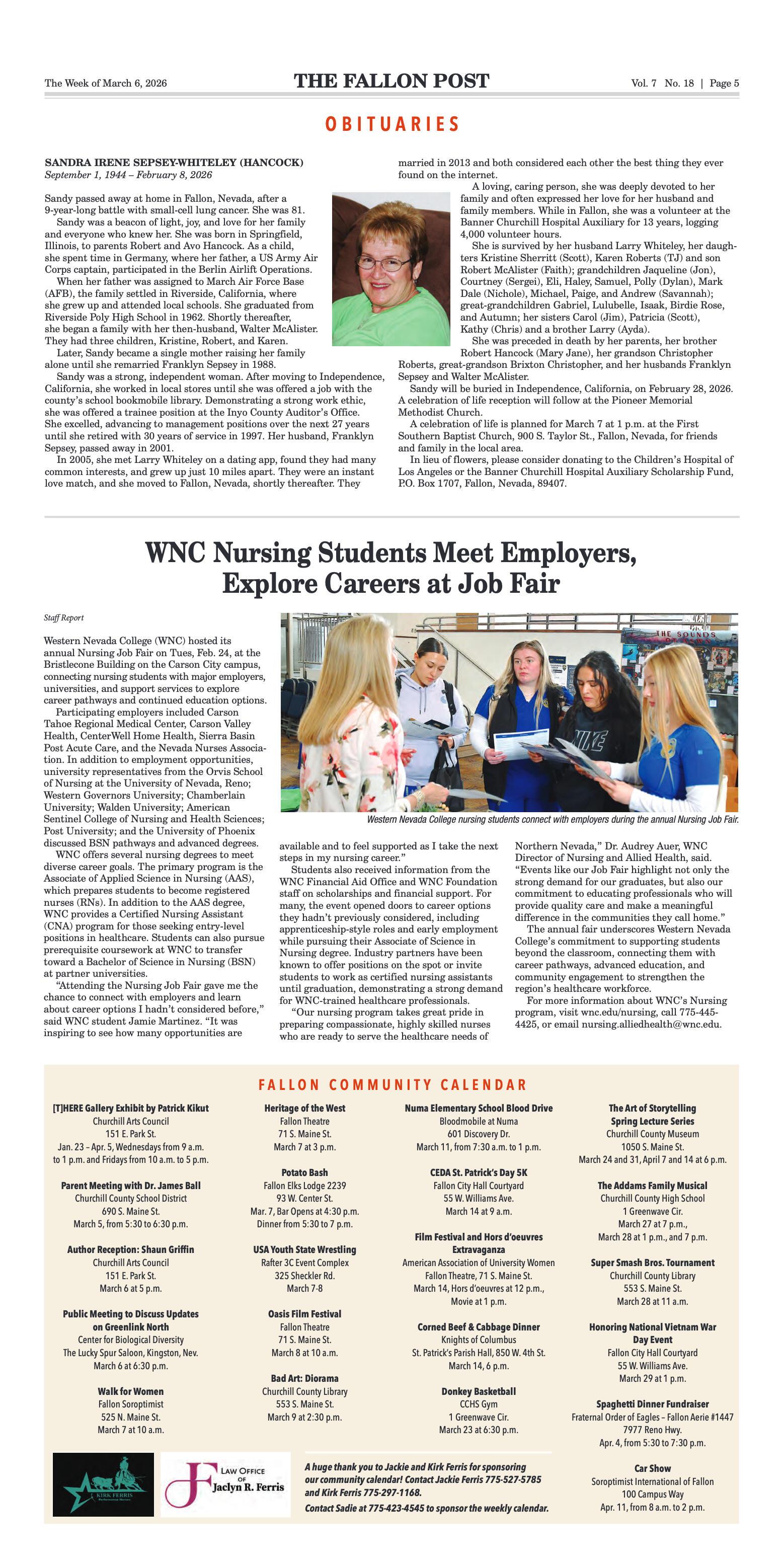
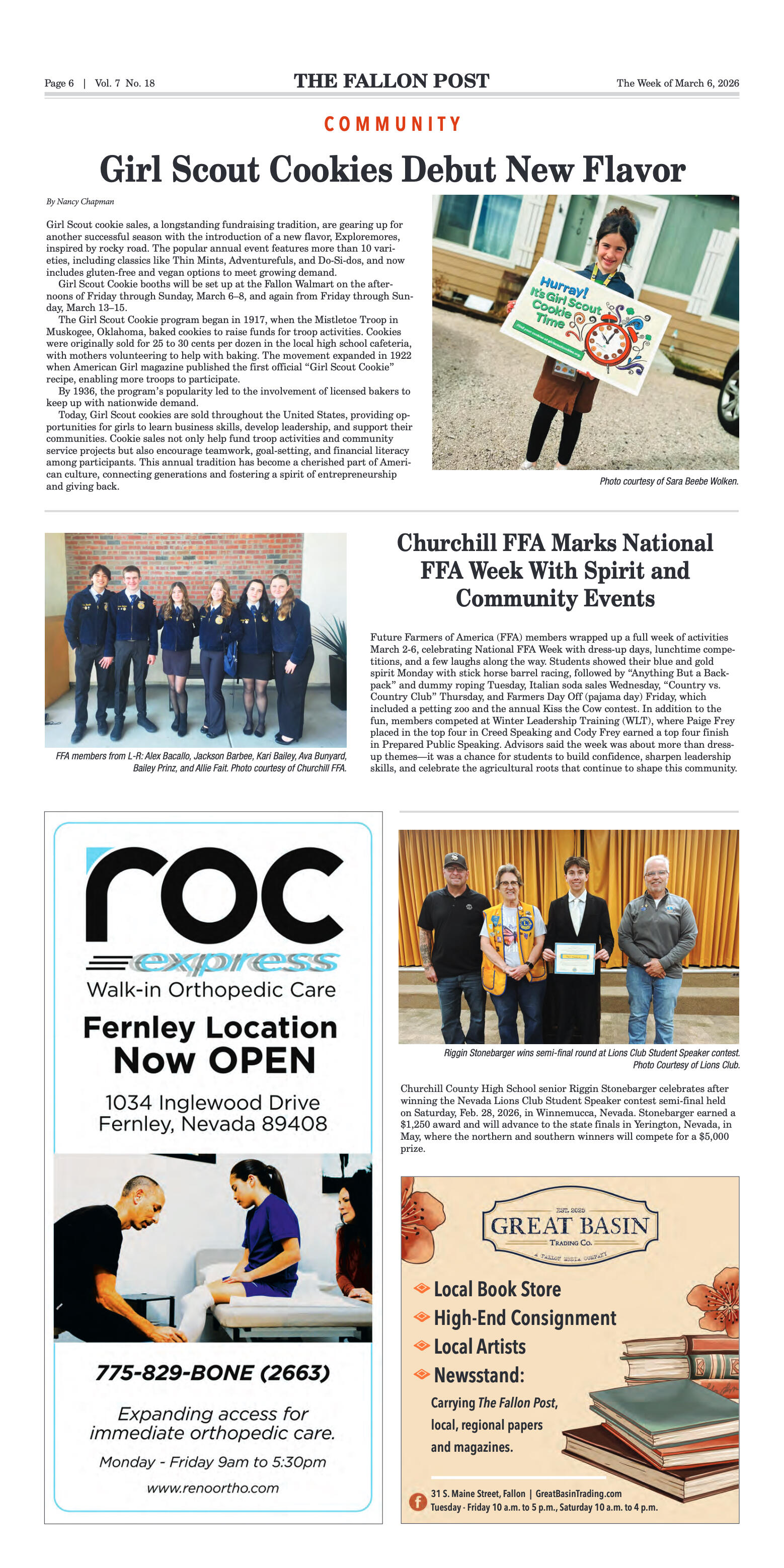


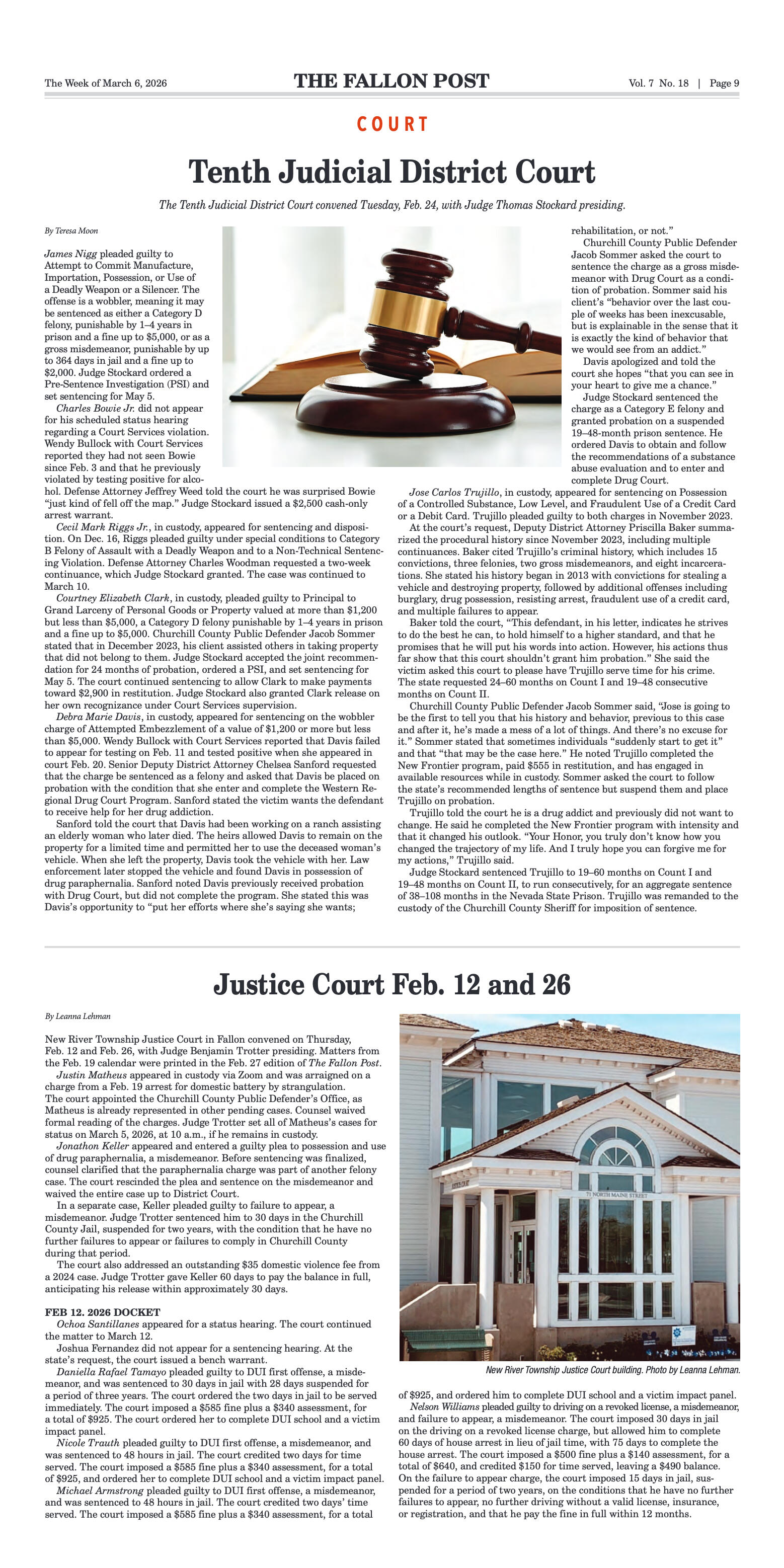
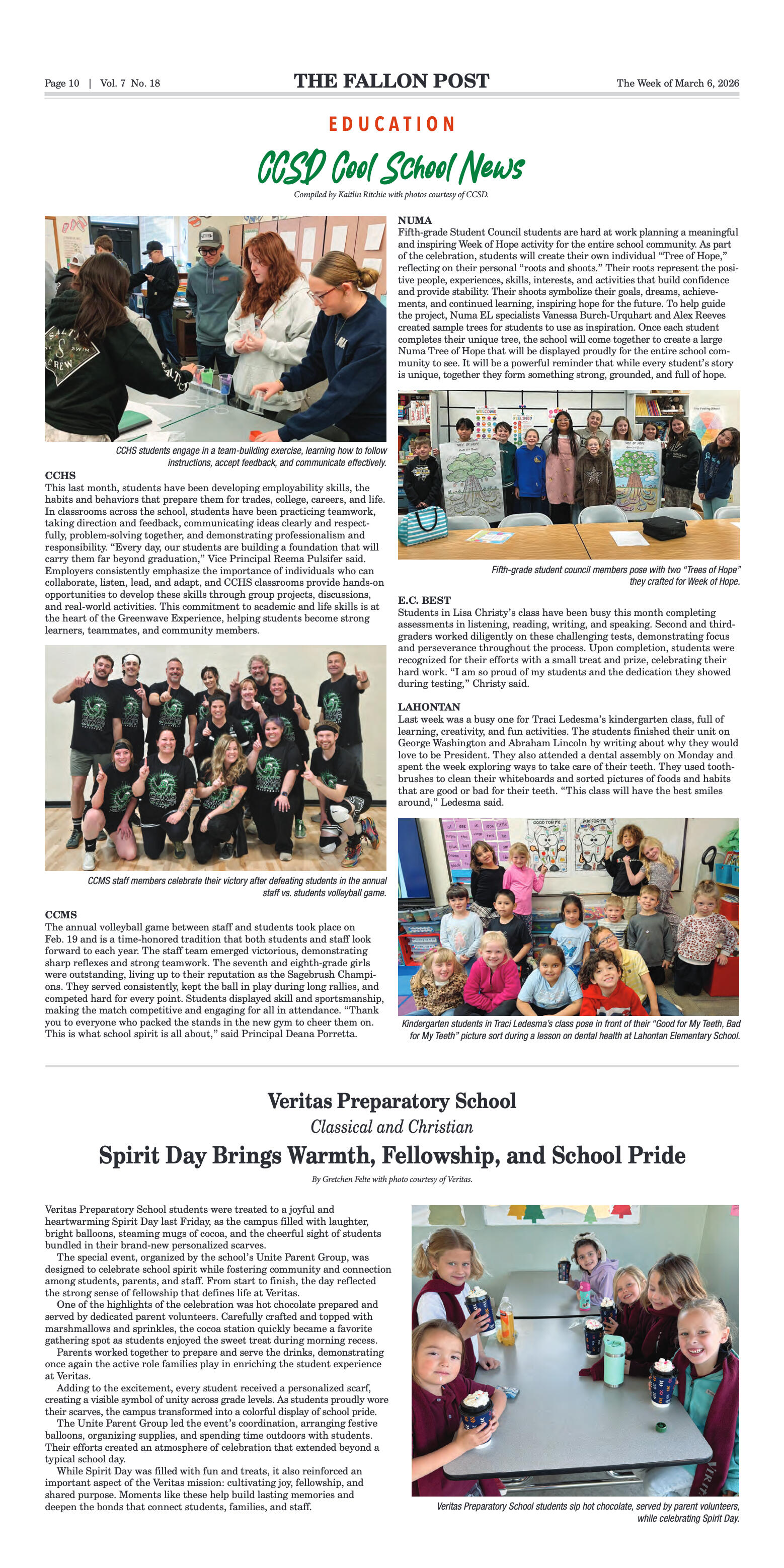
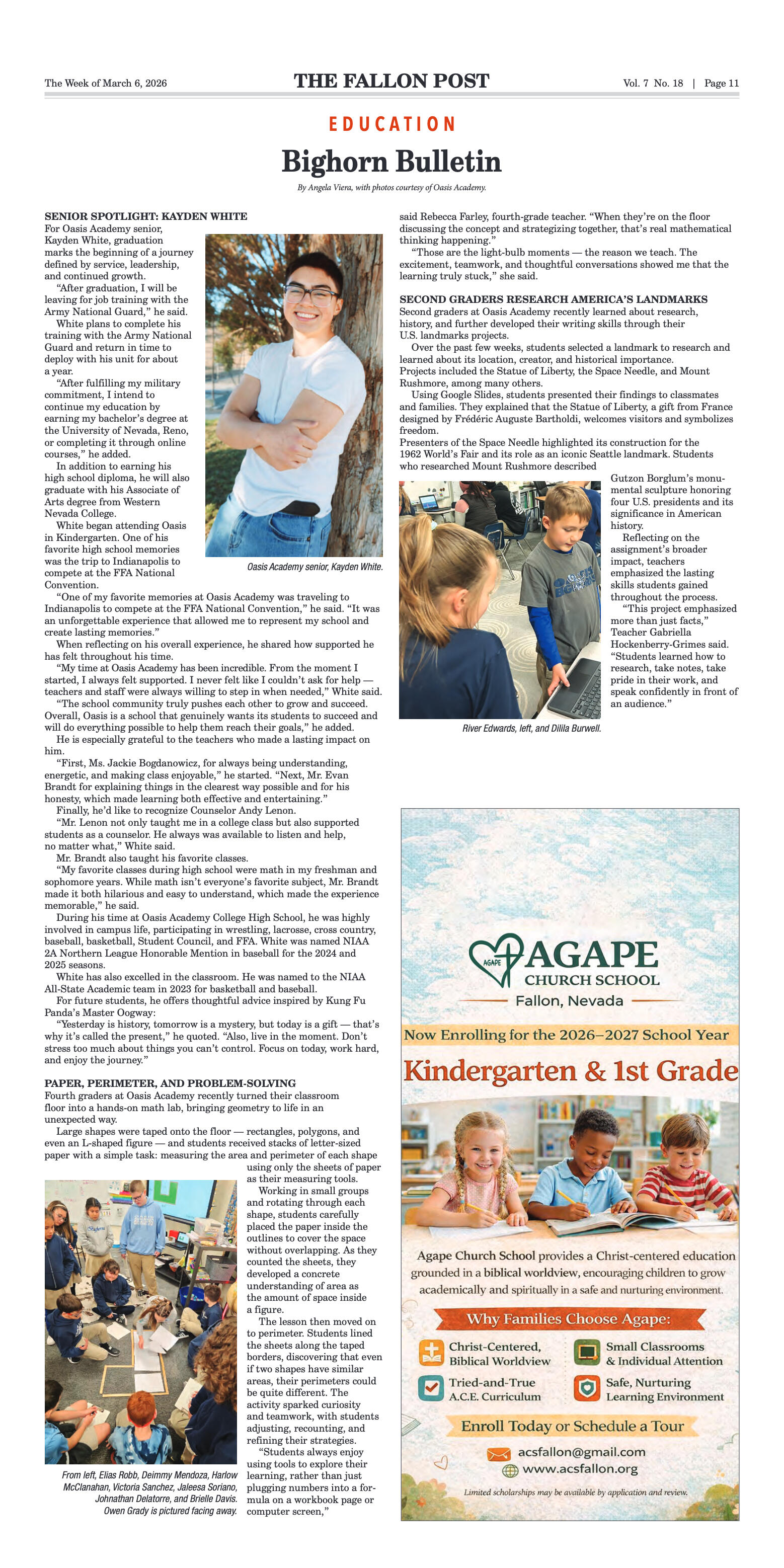
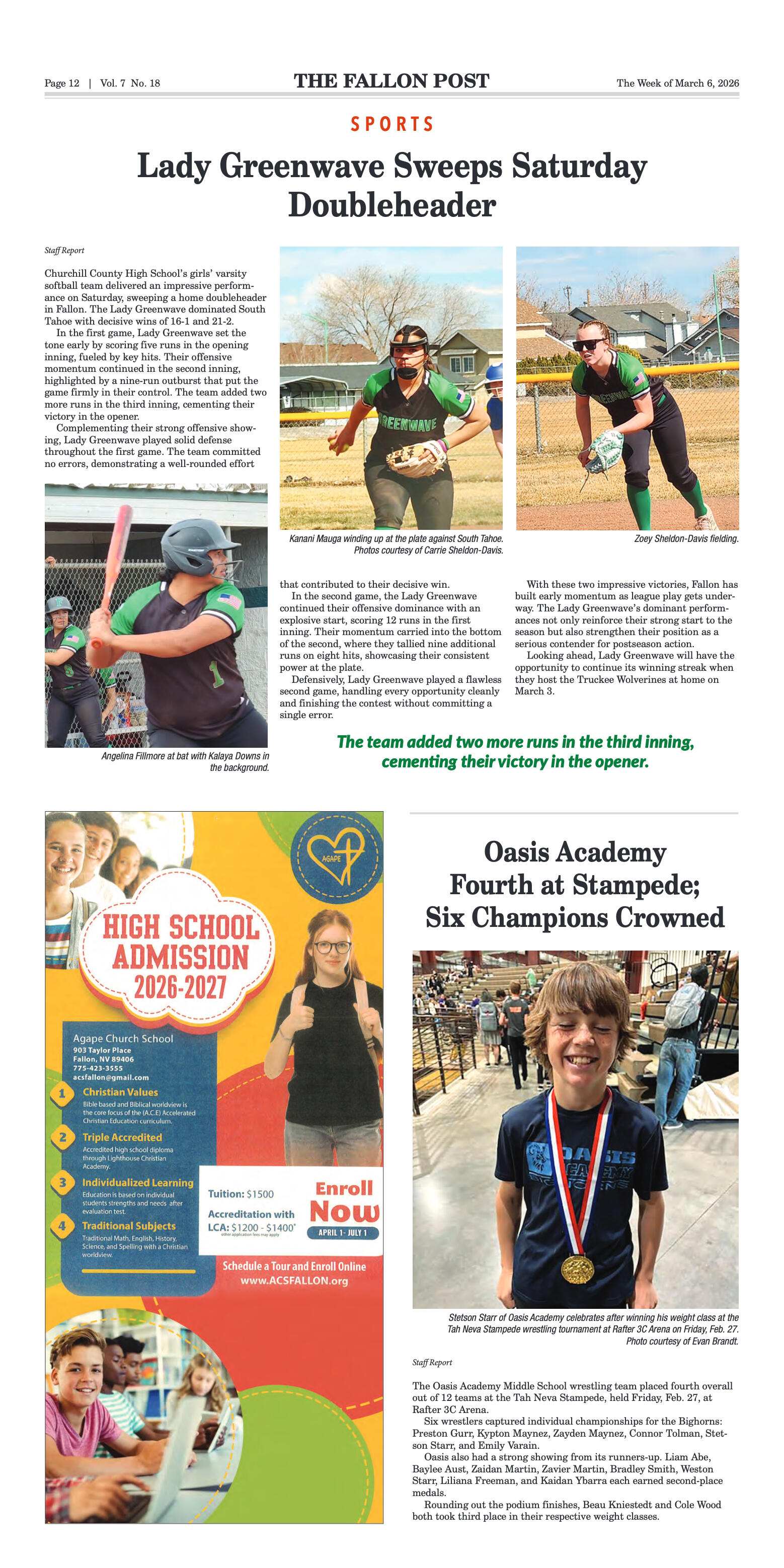
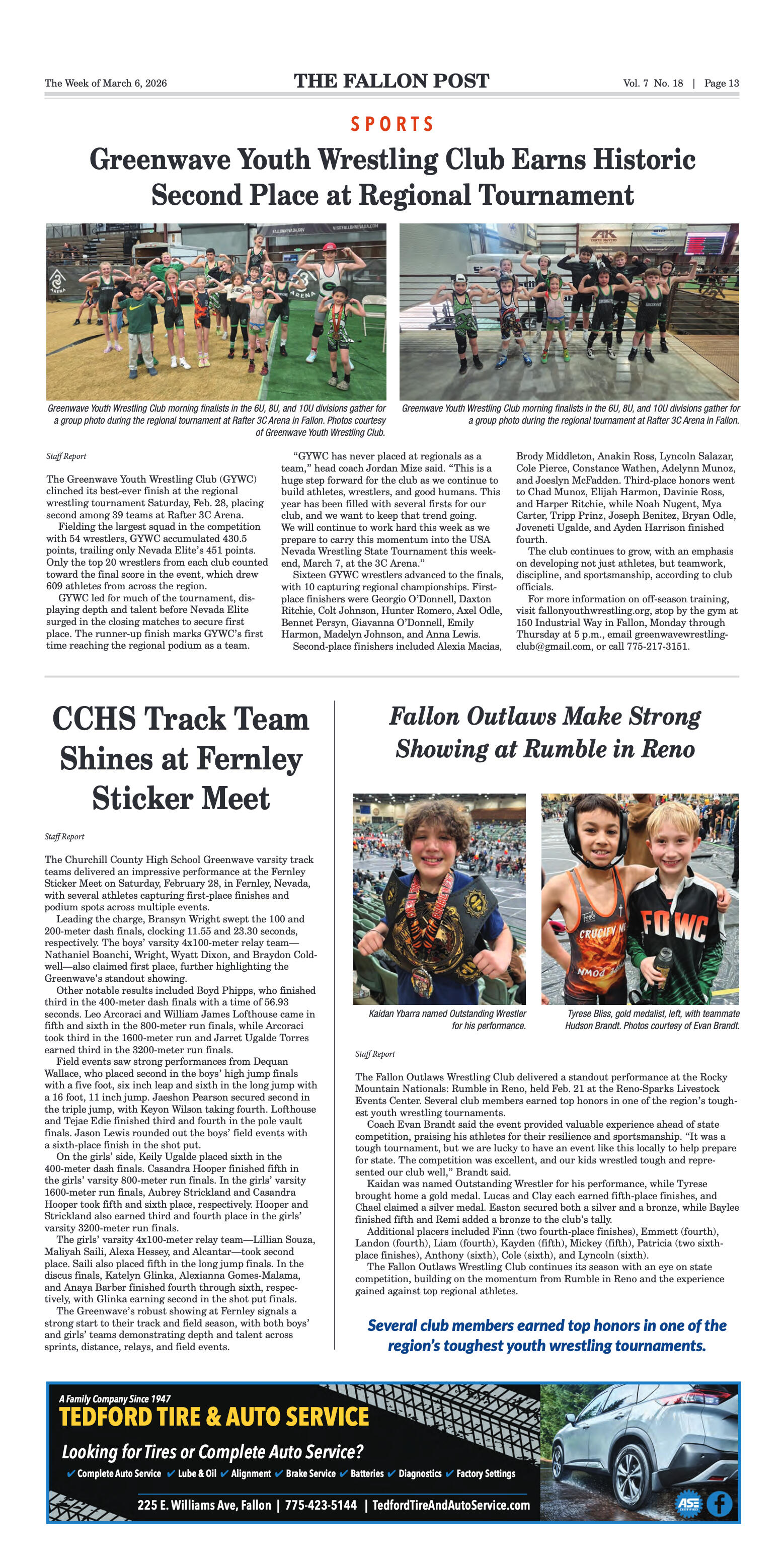
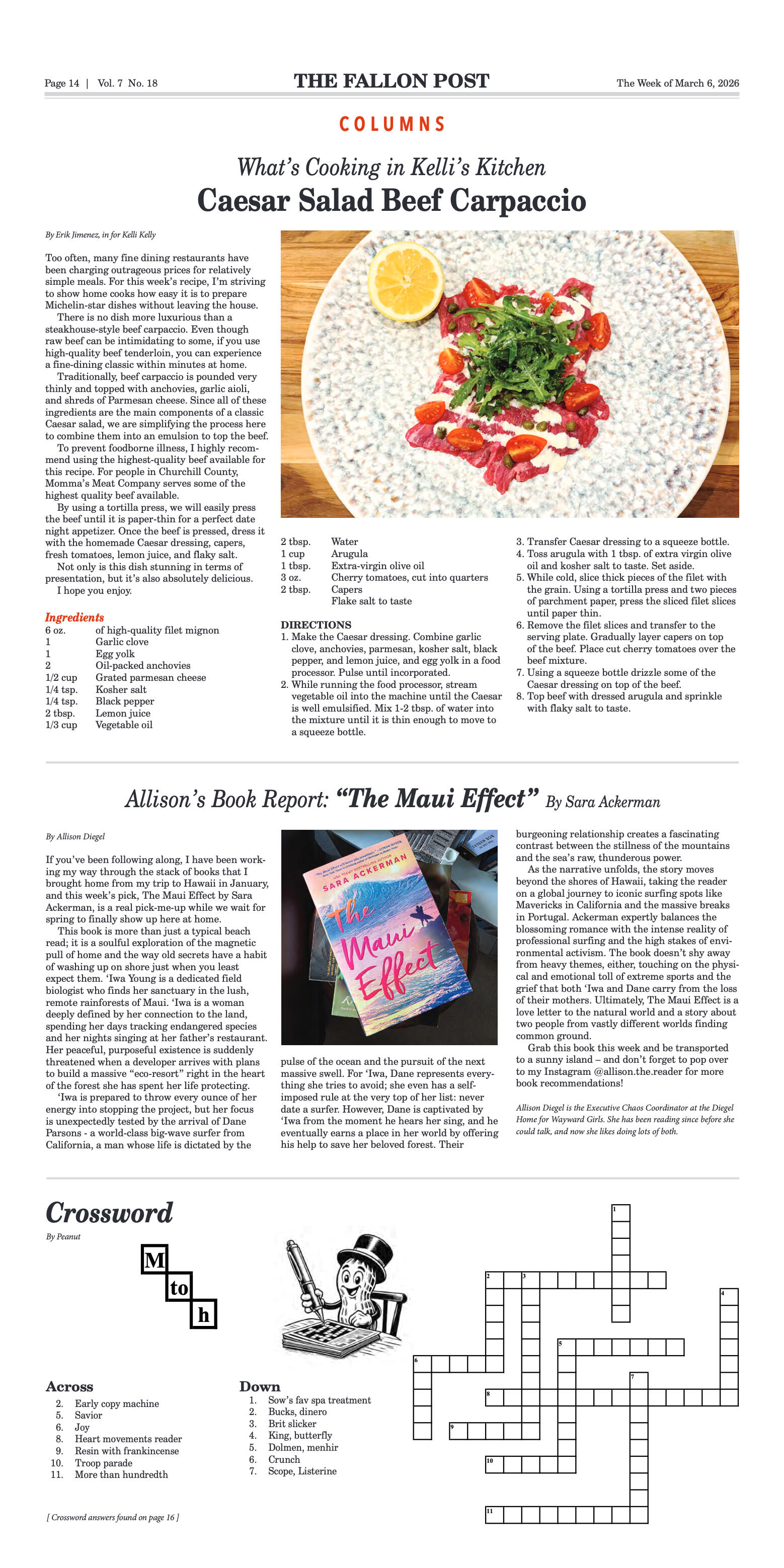
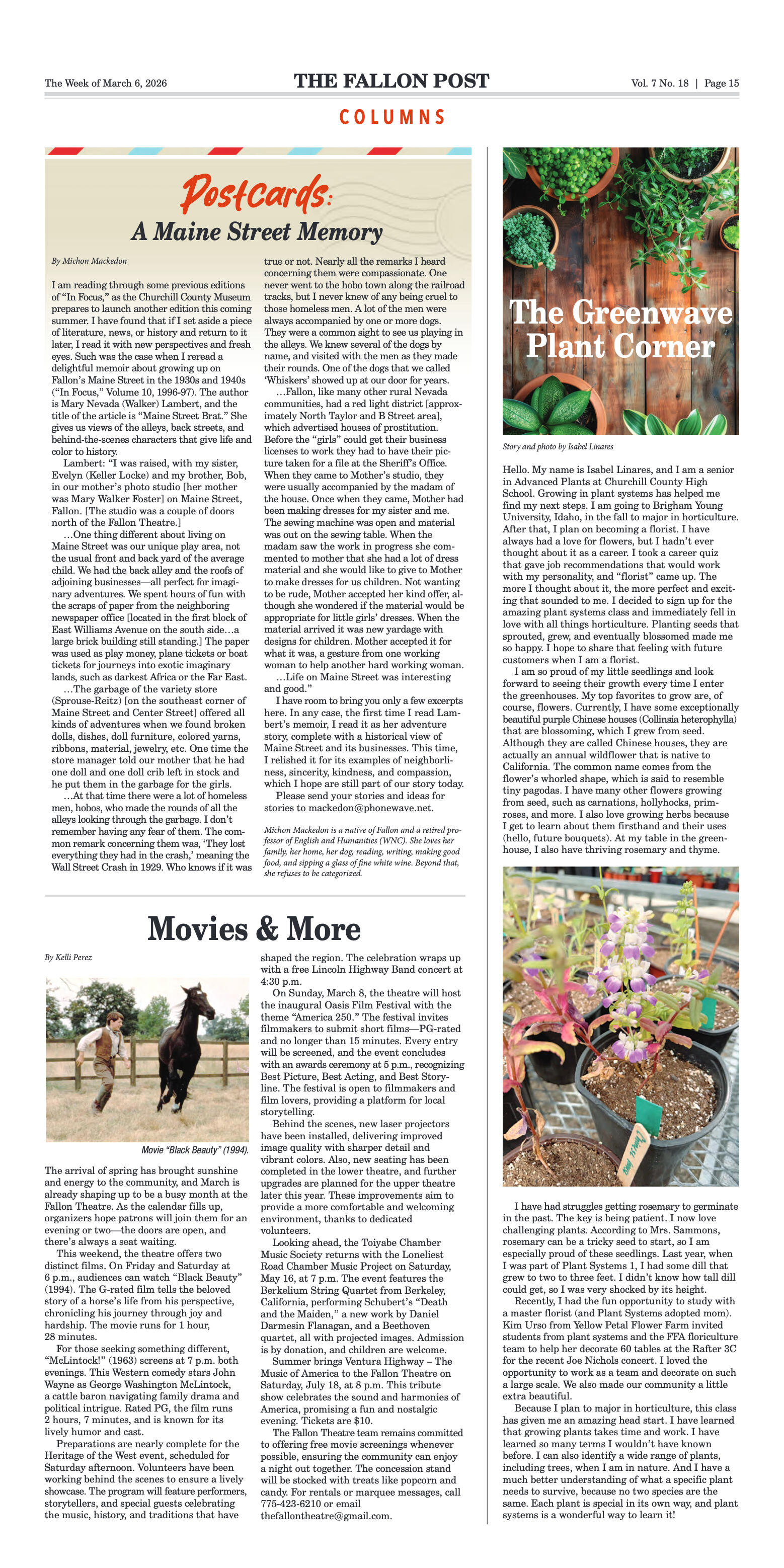
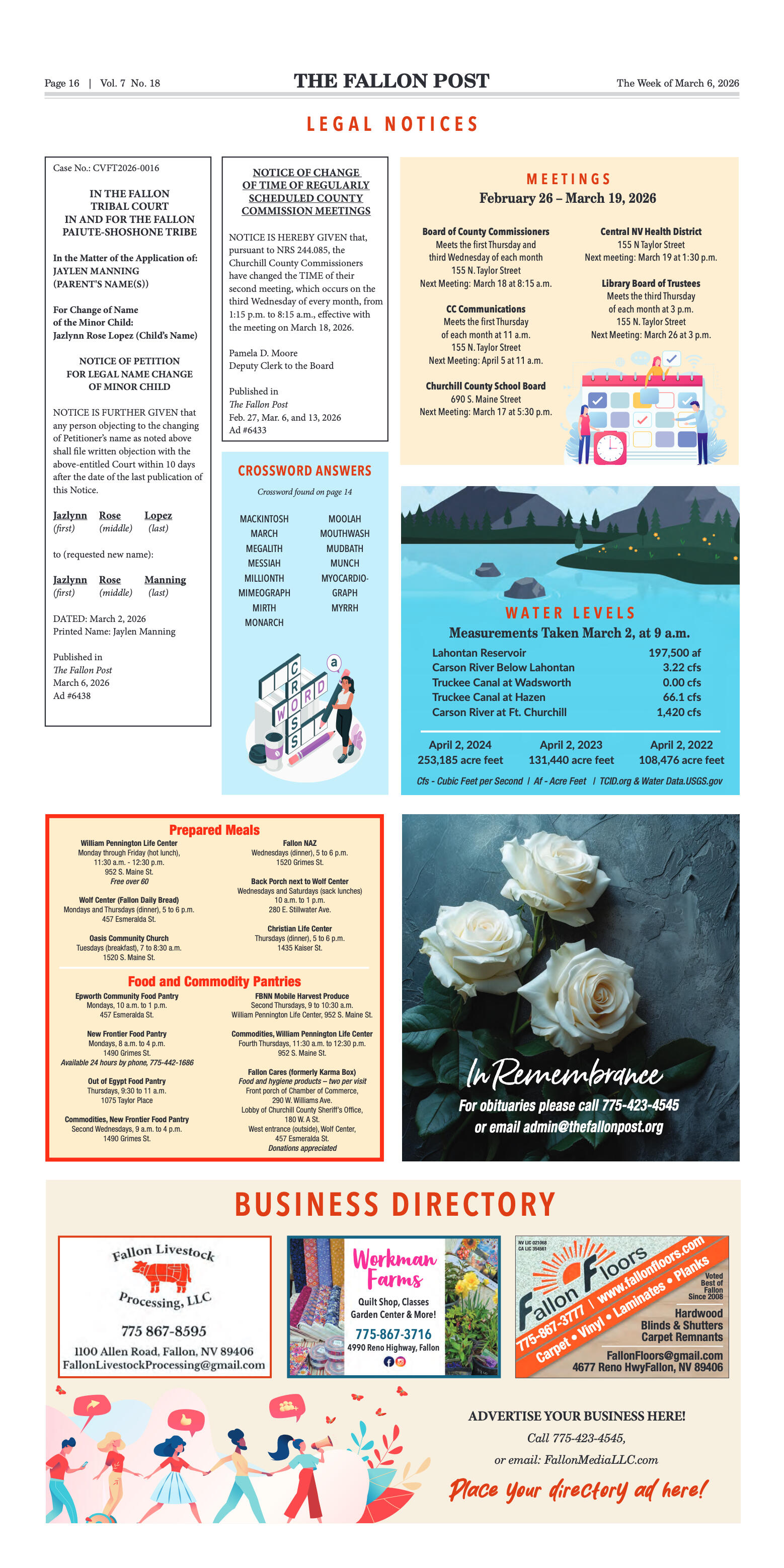






















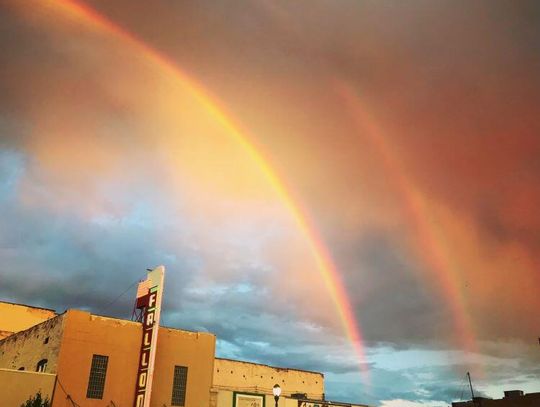
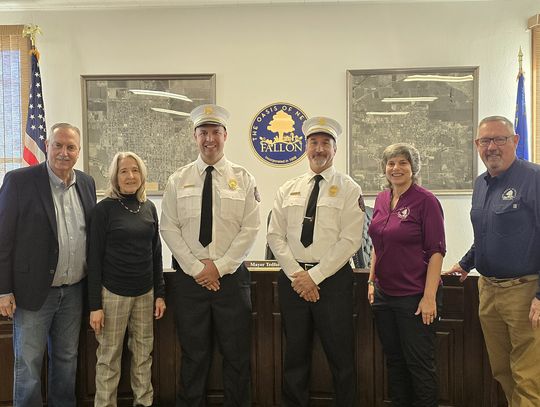
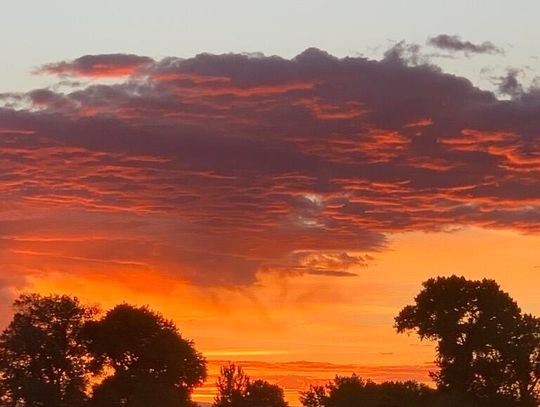

Comment
Comments